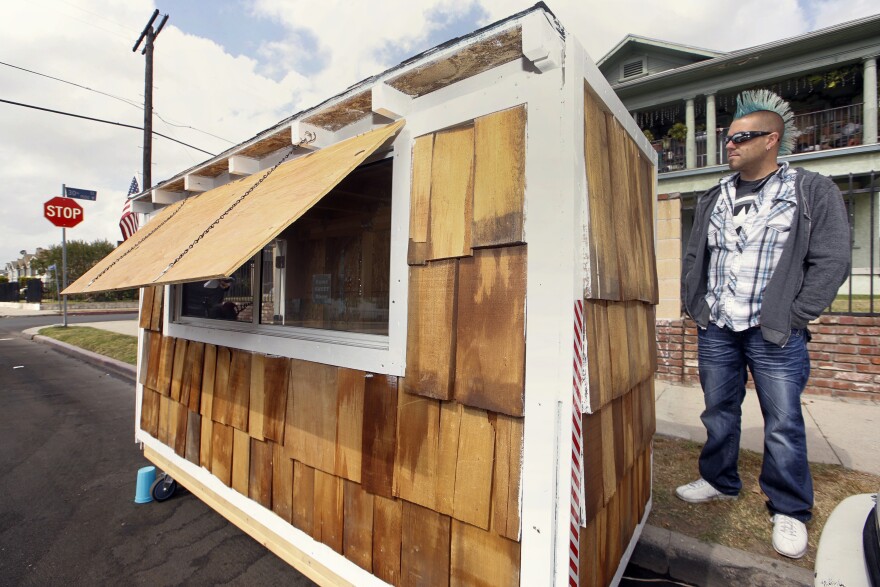City councilors have approved a new ordinance that will allow developers to build tiny home parks in Bangor.
The ordinance is another tool that the city could use to expand its local housing stock, said Bangor planning officer Anne Krieg. It also stems from an affordable housing study that the city conducted back in 2019.
"One of the recommendations was to look at diversifying the housing stock, giving developers different options to create different kinds of housing units," Krieg said.
Tiny homes have to meet the same building, plumbing and electric codes as any other single-family home.
A local builder has expressed interest in redeveloping a mobile home park in Bangor into a tiny home community. Krieg said there are few, if any, other communities in Maine that have adopted formal ordinances for the specific purpose of allowing tiny homes.
A second ordinance approved by the city council would allow developers to build permanent supportive housing.
The city council on Monday night also approved an ordinance that will allow developers to build permanent supportive housing, which provides on-site support services but does not have a limit on how long tenants can stay.
It resembles transitional housing for those who may be experiencing mental health or substance use disorder challenges, Krieg said.
"It might be a small efficiency apartment, but you definitely have much more independent living within your unit and you also have services right in the building," she said. "It's not the same transitional [housing], because you may be there permanently. You don't have to leave in 24 months."
Penquis is planning to redevelop a hotel in Bangor into permanent supportive housing, Krieg added.
Bangor officials say they're hopeful both ordinances will help the city expand its local housing stock. Councilors heard from businesses and members of the public Monday night, who expressed concerns with the city's unsheltered population.
The city passed another ordinance earlier this year that was designed to make it easier for large, historic homes to be converted into boarding houses.




